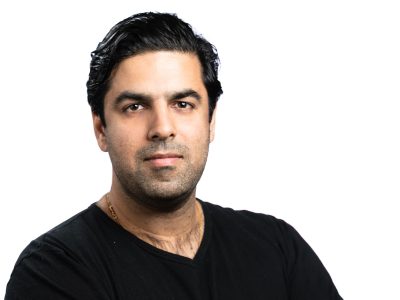The recent Asimov AI Meetup in Dubai saw participation from industry experts, who discussed the future of Artificial General Intelligence (AGI). Supported by Haltia.AI, Conreality, and MARSES Robotics, the event provided a fertile ground for dissecting the ethical, technical, and societal dimensions of AI.
The panel included Akshat Prakash, CTO of Camb.ai; Arto Bendiken, CTO of Haltia.AI; Khalifa Manna, Founder of Shapr; Saqr Ereiqat, Crypto Veteran and Partner at TradeDog Group; and Dr. Shuang Chen, Chairman and CEO of Heka Cloud. Each brought unique insights into the rapidly evolving AI landscape.
According to Akshat Prakash, the journey towards AGI is not just about technological hurdles but fundamentally about defining what intelligence means to us. “By 2030, we anticipate interacting with models so advanced they blur the line between human and machine interaction, though not necessarily achieving AGI,” he added.
Arto Bendiken commented on the feasibility of achieving superhuman intelligence, saying, “Current AI advancements are exciting, yet the path to superhuman intelligence is more fiction than fact. We’re leveraging a misunderstood model of the brain that surprisingly works as a universal function approximator, but it’s not the solution for reaching AGI.”
Khalifa Manna highlighted the potential impact on software usability. “The prospect of AI simplifying interactions with enterprise software is thrilling. However, there’s a risk of homogenization where everything becomes data-driven and similar, which could stifle creativity,” he explained.
Saqr Ereiqat pointed out the immediate influence of AI, by adding, “AI already significantly influences our daily choices. The pressing concern is not the distant future of AGI but the current algorithms shaping our decisions.”
Dr. Shuang Chen emphasised the need for regulation, by saying that the progression from traditional rule-based systems to AI’s learning capabilities represents a monumental leap. “We must ensure AI development is governed by transparency and accountability, especially as systems become capable of independent code generation,” he said.
The session, moderated by Talal Thabet, CEO of Haltia.AI, began with a discussion on the barriers and timeline for AGI. Panelists highlighted both technological and conceptual challenges, with a consensus on the complexity of defining intelligence itself. Khalifa Manna explored the transformative potential of AI in making user interfaces more intuitive, while also cautioning against the risks of data-driven homogenization.
Arto Bendiken shared scepticism about the current trajectories towards AGI, pointing out the limitations of relying on outdated models of brain function. Saqr Ereiqat stressed the immediate and pervasive role of AI in influencing decisions through platforms like YouTube and Instagram, underscoring the necessity of addressing these influences today.
Dr. Shuang Chen called for urgent and effective regulatory frameworks to manage AI’s rapid advancements, especially to oversee autonomous code-generating systems. The discussion on governmental regulation revealed a range of perspectives, from advocating innovative regulations that keep pace with technological advancements to cautioning against overly restrictive measures that might stifle innovation.










Comments